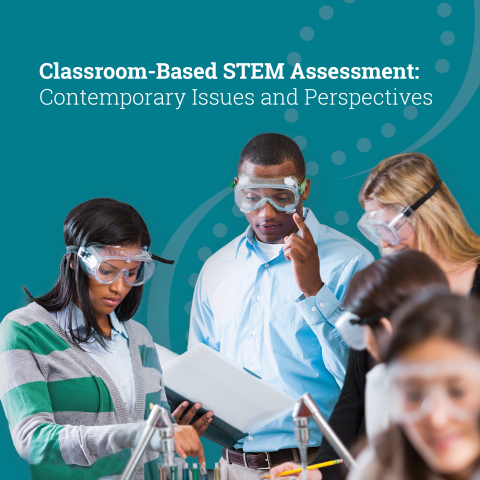Computer-Using Educators Fall CUE 2023 National Conference; Stockton, CA
To learn more, visit https://cue.org/page/conferences.
To learn more, visit https://cue.org/page/conferences.
To learn more, visit https://sigcse2024.sigcse.org/.

This report takes stock of what we currently know as well as what we need to know to make classroom assessment maximally beneficial for the teaching and learning of STEM subject matter in K–12 classrooms.
EPK-2 is designing and testing a model of PreK-2nd grade teacher professional learning to address computational thinking. The focus is teachers’ generative development in CT as informed by collaborative, inquiry-based learning. The goal is to help teachers and schools build computational thinking pathways beginning with students’ earliest years. Research questions explore factors mediating PreK-2nd grade teachers’ learning and implementation of computational thinking in their classrooms.

This poster will present the NSF funded project entitled CAREER: Situating Computational Learning Opportunities in the Digital Lives of High School Students. This project explores ways to use the data that high school students create and consume daily to situate foundational data science ideas.

The ASSIST-MSCS project strives to develop a set of educative resources, formative assessment tools and teacher professional development (PD) to support middle school teachers with their understanding of Computer Science (CS) standards and their ability to use formative assessment tools related to these standards.

In this project, we engaged elementary (grades K-5) pre-service teachers (PSTs) as facilitators in a family technology program called Family Creative Learning, embedded in the Denver Public Library makerspace network. We studied PSTs’ computational thinking and facilitation practices and its impact on children's learning across informal and classroom settings where pre-service teachers concurrently conduct their field work. The project team will develop research-based resources, tools, and activities that help to cultivate these key facilitation practices.

Wright maps can provide psychometricians with information about validity based on internal structure, by allowing us to look for banding based on score levels across items. We recently interviewed teachers and trainers about the use of these maps, along with learning progressions and sample student responses to find what was more and less useful, and what features should be added. In this presentation, we will discuss these methods and feedback from teachers.

This webinar provided early career data science education researchers with information on the state of the field; tools, curricula, and other resources for researchers; and insight into funding opportunities and proposal development. Participants explore topics, research interests, and problems of practice in more depth in breakout rooms with session leaders.
This webinar provided early career data science education researchers with information on the state of the field; tools, curricula, and other resources for researchers; and insight into funding opportunities and proposal development. Participants explore topics, research interests, and problems of practice in more depth in breakout rooms with session leaders.
K- 12 Computer Science (CS) education is developing rapidly but still lacks a comprehensive measure for CS teachers’ pedagogical content knowledge (PCK) . We respond to this need by describing the design of a CS-PCK instrument for ‘Algorithms and Programming’ that measures three broad constructs: (a) teachers’ understanding of standards and standards-alignment, (b) teachers’ formative assessment practices, and (c) teachers’ self-efficacy for teaching and assessing CS.
K- 12 Computer Science (CS) education is developing rapidly but still lacks a comprehensive measure for CS teachers’ pedagogical content knowledge (PCK). We respond to this need by describing the design of a CS-PCK instrument for ‘Algorithms and Programming’ that measures three broad constructs: (a) teachers’ understanding of standards and standards-alignment, (b) teachers’ formative assessment practices, and (c) teachers’ self-efficacy for teaching and assessing CS.